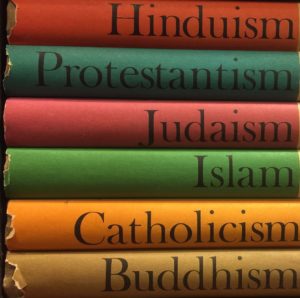As Americans, we have constitutional rights. One of these is the right to practice religion. While we can practice religion on our own time, many people are worried about engaging in religious practices while in the workplace.
Under Title VII of the Civil Rights Act of 1964, you cannot face discrimination based on your religion. This also means that if you have certain beliefs and practices that may interfere with your job, you have the right to request a reasonable accommodation from your employer.
An employer, however, does not have to grant every request for religious accommodation, particularly if the request would cause the company a significant hardship or sacrifice safety. Read on to learn about situations in which religious accommodations are approved or denied.
Granting Religious Accommodations
Under Title VII, employers have an obligation to reasonably accommodate an employee’s religious belief or observance as long as it does not pose an undue hardship. An undue hardship is defined as a case posing more than a minimal cost or burden to the employer. If a hardship would cost an employer a significant amount of money or stress, then it can be legally denied.
In addition, an employer only has to accommodate religious beliefs that are “sincerely held.” This means that if the employer finds the request suspicious or not religious in nature, then it does not have to be accommodated. Also, if the request seems inconsistent—such as the employee has never requested the accommodation before—then it may be legally denied.
Common Types of Religious Accommodations
The following are common religious accommodations required by employers:
- Schedule changes/shift swaps
- Changing tasks or transfers to other jobs
- Changes to dress and grooming rules
- Use of work facilities for religious purposes
At the same time, however, depending on the situation and company, these same accommodations could cause a burden to the company. For example, if a schedule change means that one employee must be paid overtime, the company can legally deny the request for accommodation. The same goes for delegating tasks. If the job absolutely requires that the person do the task, then it may be impossible to change the job description or move the person to a different job.
Some companies rely on their image and making changes to the dress code for one person may not be feasible. In small companies, there may not be space for an employee to pray on a consistent basis. The law does not require a company to make a religious accommodation take precedence over a business purpose.
Contact a New York Religious Discrimination Attorney
You have the right to practice whatever religion you choose, and this right extends to the workplace to some degree. As long as your religious practices are not causing a burden on your employer, your request for accommodation should be granted.
If you are facing discrimination based on your religion, seek legal help. The experienced New York religious discrimination attorneys at Ricotta & Marks, P.C. can assess your case and determine whether or not your religious request poses a burden on your employer. To learn more, schedule a consultation by calling (917) 540-8565 today.
The post Does an Employer Have to Grant Every Request for Accommodation of a Religious Belief or Practice? appeared first on Ricotta & Marks, P.C..

